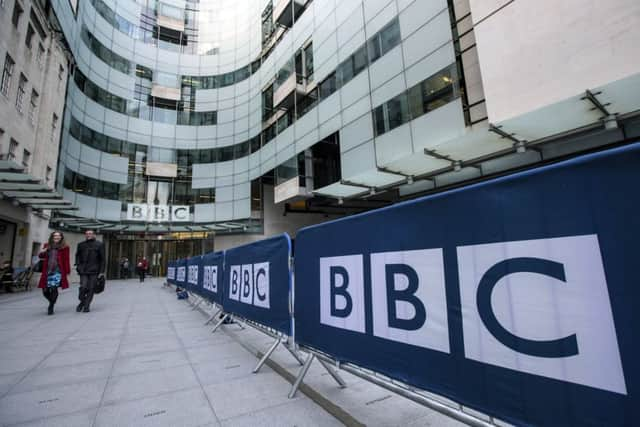Bexhill reader explains BBC’s TV licence dilemma


Last week (July 5) you published a couple of correspondents who were not best pleased with the BBC’s recent decision to end the concession of free TV licences for over-75s as from 2020.
About 3.7m pensioners will be affected, although free licences will continue to be available to those receiving pension credit (around 900,000).
Advertisement
Hide AdAdvertisement
Hide AdPrior to 1991 the Post Office dealt with TV licence administration.
As the PO is a government agency that made sense because it was collecting TV licence money on behalf of the government.
Although John Major’s Broadcasting Act of 1990 made the BBC responsible for licence administration, in 2006 the Office of National Statistics confirmed once and for all that the licence fee is a tax.
I’ve always thought it was an odd arrangement to make the BBC responsible for collecting this tax.
Advertisement
Hide AdAdvertisement
Hide AdWe don’t have the Army collecting taxes to fund its operations, farmers collecting their own subsidies or schools billing their communities for the money to pay for education services.
Why should the BBC be any different?
Especially since collecting the money to pay for its own services places the BBC in such an invidious position.
The answer has to be political – it was a neat solution to a knotty problem.
The Conservatives have never lost any love over the BBC and took the opportunity in 1991 to shift the burden of responsibility for this steadily increasing tax off their own shoulders and onto the BBC.
Advertisement
Hide AdAdvertisement
Hide AdIn recent years the benefits of this approach have come to fruition because the concession of free licences to the elderly has become unsustainable as the proportion of elderly in the population rises.
As we have seen in your columns, even though it’s a matter of taxation some folk find it easier to blame the BBC than the government.
The cost of licence fee exemption is currently estimated at around £725 million, and each year the BBC is obliged to pay a growing proportion of it.
In 2018/19 the government paid £468m, but this year the government’s contribution has almost halved to £267m.
Advertisement
Hide AdAdvertisement
Hide AdNext year the BBC will have to bear the full cost of the exemption – an estimated £745m.
By 2030 this is expected to rise to around £1bn a year as the population ages.
The BBC is a broadcasting organisation. It’s not the whipping boy for successive government failures in meeting the challenges of our rapidly changing society – both in terms of taxation and social benefits.